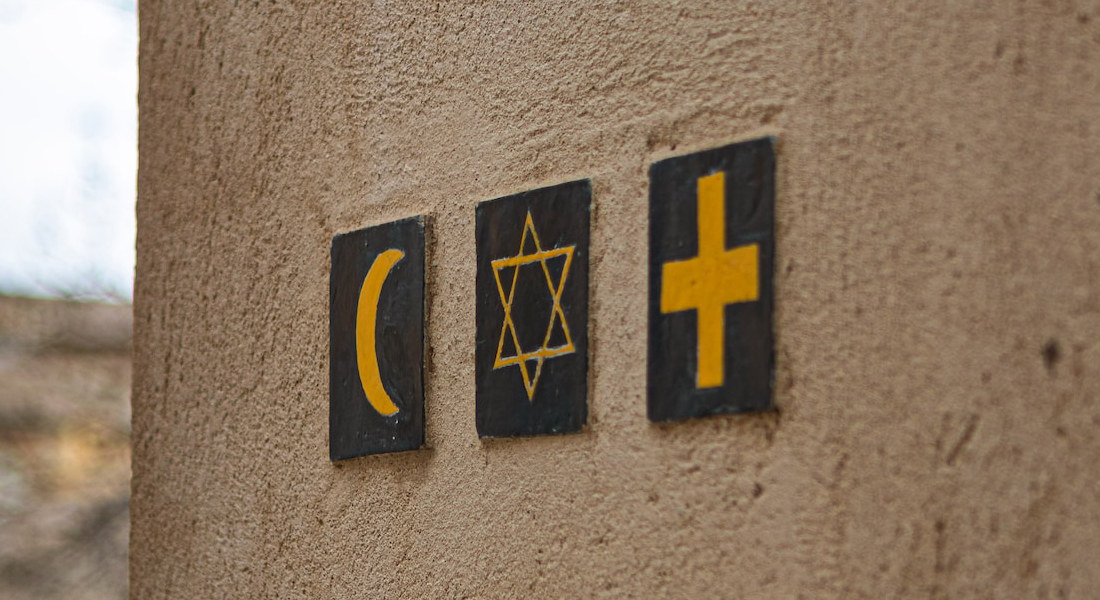Religion blocks freedom and democracy across the globe
A new major study documents that religiously motivated legislation has taken place in all types of societies and religions – to the detriment of democratic rights. The researchers behind the study also find that religion is still used to oppress women in particular and to give lawmakers unchallenged power.

In 1750 BC, Hammurabi's law designated the king of Babylon as the representative of the gods on earth. In modern times, Sharia law is an example of how religion can penetrate the state apparatus. Examples of religion being used to legitimize political power can be found all over the world.
Now, researchers from Copenhagen and Lund have studied the historical role of religion in politics and how religion continues to be used to legitimize politics in some societies. The study shows that the past is hard to escape:
"Societies that are historically characterized by belief in high gods are more likely to have current laws that discriminate or favour certain groups in society," says Jeanet Sinding Bentzen, associate professor at the Department of Economics at the University of Copenhagen.
"These could be laws that restrict women's rights or prohibit homosexuality. Or laws on blasphemy and privileges for religious organizations," she adds.
Religion and inequality go hand in hand
In the research project, Jeanet and her colleague Gunes Gokmen collected data on religions in 1,265 pre-modern societies. The researchers compared this information with current data on the prevalence of religious laws in 176 countries.
"The wealth of information allows us to compare societies that belong to the same language group, have the same level of complexity, subsistence method and level of development – and are located on the same continent," explains Jeanet Sinding Bentzen.
Even among societies that are similar on all these parameters, inequality can be much higher in one society than in another.
"It is clear from the data that societies with greater social inequality are more likely to worship gods that are attributed with a dominant character. On average, moralizing gods are 30 % more likely to be present in societies with large class differences compared to more equal societies," says Jeanet Sinding Bentzen, elaborating:
"Moralizing and punishing gods are far more effective as a means of power, while spirits that cannot punish or interfere with human actions are useless for that purpose."
God protects the dictator
The researchers have made another important discovery: in autocracies, where power is concentrated in the hands of a single person or a very small group of people, there is a clear tendency to institutionalize religion. An autocrat can legitimize his power by referring to the divine.
"The divine legitimacy of the concentration of power in a very small group of people may very well support the persistence of autocracy, because the small group of rulers receives its mandate to exercise power from above and therefore does not have to ask the people. In this way, the religious mandate of the autocrat is in opposition to democratization," Jeanet Sinding Bentzen emphasizes.
The researchers see a world where religion and populist policies are gaining support in some societies. For this reason, they argue, it is becoming more important to understand the roots of such trends.
"There is a wealth of studies showing that religion can have a positive impact on people's general well-being and societal-level factors. Our study shows that this coin also has a flip side," says Jeanet Sinding Bentzen and continues:
"Religion is many things. While for some it is a set of beliefs that provide comfort and personal strength, for lawmakers it can be a tool to gain unchallenged power."
Read the full study "The Power of Religion" here.
Contact
Jeanet Sinding Bentzen
Associate professor, Department of Economics
Mail: jeanet.bentzen@econ.ku.dk
Phone: +45 35 32 44 00
Simon Knokgaard Halskov
Press and communications officer
Mail: sih@samf.ku.dk
Phone: +45 93 56 53 29
